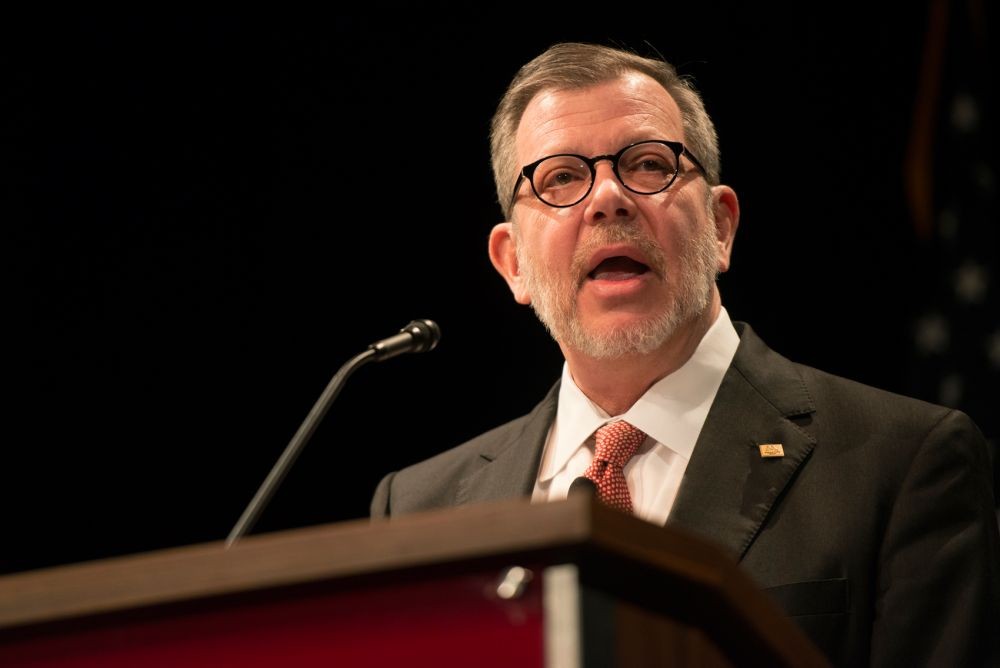With a multi-step initiative set to roll out next year, University of Minnesota administrators hope to prevent sexual misconduct by changing campus culture.
The plan — which focuses on training and sexual assault awareness — is the product of a task force University President Eric Kaler assembled last spring in response to growing concerns about sexual misconduct. As the first step of the initiative, all faculty and staff will receive training this spring.
“The goal is to promote an environment that is as safe and free from sexual misconduct as we, as a university community, can make it,” said John Finnegan, dean of the School of Public Health and head of the sexual assault task force, while presenting the plan at a University Senate meeting Thursday.
More than 300 faculty, staff and students worked on developing the program, which has received funding for its first two years. The executive summary of the initiative was made public last week and is open for a 30-day comment period.
“We are eager to get community input … to hear all the voices around this really critically important problem and issue in front of us,” Kaler said in an interview with the Minnesota Daily.
Mandatory employee training
In the spring of 2018, a sexual assault prevention online training module will become mandatory for faculty and staff.
This additional training focuses on sexual harassment in the workplace and educating employees on responding to student sexual misconduct, said Tina Marisam, University Title IX director.
The online training will be provided by the company EVERFI, which also provides the Haven online training program for first-year students.
Marisam brought the new program to faculty committee meetings this semester to gather feedback on its content and implementation.
To ensure compliance, the software sends users email reminders, Marisam said. If faculty and staff fail to complete the training, their supervisors, department heads or deans will be notified.
Other institutions using similar programs have received high compliance rates, Marisam said.
Based on feedback from University employees, officials are looking into ways to continue conversations around sexual assault after the training is completed. Phase two of the mandatory training involves face-to-face department-level training, although Marisam said officials aren’t sure what that will look like yet.
Student engagement
All students will also go through a mandatory online training starting next fall, part of which will focus on bystander intervention.
“If we see something, we have to say something or do something to stop it,” Kaler said at the University Senate meeting.
The program will be offered through the Haven program, which the University already uses to educate first-year students about alcohol safety and other aspects of well-being.
A culture shift
Starting next fall, officials will launch a campaign seeking to change campus culture around sexual misconduct.
“We have a culture in our country that empowers people to act badly toward other people. We need to change that,” Kaler said in an interview with the Minnesota Daily. “Part of this effort is to understand that the perpetrator’s action … is a consequence of the culture and structure around him or her that is causing that action. We need to get to a place where that kind of behavior is not acceptable.”
The campaign may result in an increase in reported incidents of sexual misconduct, Finnegan said. Instances of sexual misconduct are often unreported, and a growing sense of safety and support may increase reporting, he said.
In a letter to Kaler, Finnegan stressed the important of clear communication within the community throughout the program.
“This is a journey, not a destination,” Finnegan said.








